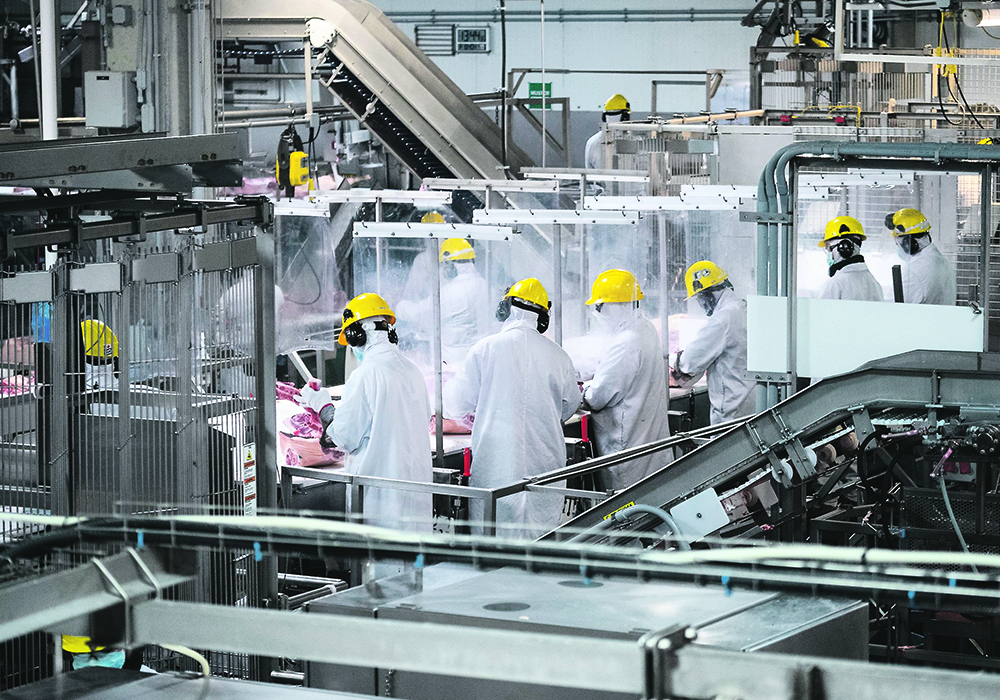The best fighter for farmer fairness since Teddy Roosevelt. Doesn’t that sound great?
That’s one thing U.S. President Joe Biden got called last week as he led a White House roundtable attacking corporate concentration among U.S. meatpackers, whom he accused of the “exploitation” of farmers.
It was a chance for Biden to point the finger at big corporate players like the handful of meat-packing companies that dominate the U.S. industry, including the four who control 85 percent of U.S. beef slaughter, the four who have 70 percent of chicken processing and the four with 54 percent of hog slaughter. In specific regions the level of concentration is far higher.
Read Also

Coloured bean production down, whites are up
Bean prices have been slumping and the outlook is for more of the same.
Biden was blaming them for the spike in meat prices since the pandemic hit, claiming a lack of competition and perhaps even collusion had created that inflation problem.
There hasn’t been much evidence presented to back these claims, but the finger-pointing effort has been sustained for months, finding much support in some farmer circles. (The packing industry claims numerous plant shutdowns and chronic labour shortages have led to meat shortages, which have led to the high grocery store prices).
The remedies being promoted by the Biden administration include a snitch line to report anti-competitive actions by the packers, increased policing by regulators, and hundreds of millions of dollars to subsidize new, independent packing plants.
This all seems like the triumph of good-sounding policy over intelligent analysis. It’s a common phenomenon in politics in general, and in agriculture in particular. What sounds good is often favoured compared to what might work well.
It certainly happens in Canada. For example, how many times have we been told that various forms of “running rights” will turn the two major railways from being parasitic exploiters of grain farmers’ captive position to becoming providers of a competitive, better and cheaper service? If farmers (or the marketers or grain companies who arrange their grain sales) could order trains whenever and wherever they needed them, the railways would lose their ability to ignore farmer concerns.
The problem with that is that it almost certainly doesn’t work, and it would end up costing all farmers a tonne of money if done in a big way. Railways aren’t like highways that can handle traffic coming from all over and heading in multiple directions all at one time, willy-nilly. They’re more like pipelines that need to be running at near maximum capacity and that takes careful management.
Anything that savages the efficiency of the system will beat down its capacity and cost a lot to the operators.
Some farmers might think that’s a good thing, a form of justice, for the companies to be hit with higher costs. But as we always see in agriculture, hits to profitability above the farmer level are invariably pushed back to the farmgate, either in the form of higher costs or in industry underinvestment.
What farmers need is highly efficient, well-capitalized companies not just providing today’s critical services, but also investing in tomorrow’s products and markets. That’s true whether we’re talking about meat packers, railways, grain companies or food processors.
There definitely needs to be a government role in ensuring there is no anti-competitive behaviour among oligopolistic players. There needs to be special laws governing industries with inherent monopolistic features, including railways and meat packers.
It’s good to have financing for new entrants backed by governments trying to ensure new players have a chance to get into the industry.
But doing anything to damage the ability of crucial companies to run their systems the best they can, at the highest efficiency possible, while making a good profit will blow back on farmers in a big way.
Most of what Biden has done so far doesn’t amount to much more than good-sounding rhetoric. That’s probably a relief because the last thing our already-stressed meat supply chains need is legislative chaos.
It’d be a pity if the heightened public and political attention our woes have earned bring nothing better than political blather, but that would be better than real action taken on phantom foes.
















